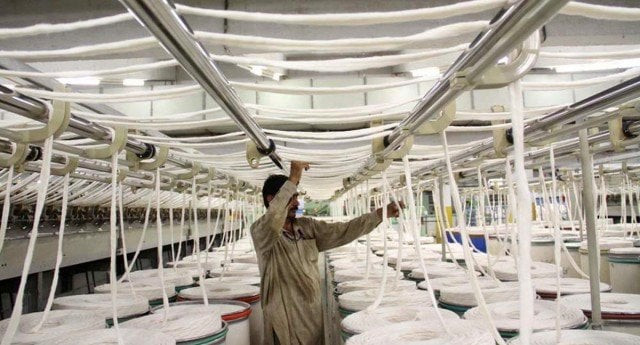Textile mills demand increase in duty drawback
Stress need for changing rules, simplifying tax laws for industries

The All Pakistan Textile Mills Association (Aptma) has sought an upward revision in duty drawback on exports to bring it in line with current duties and taxes.
A notification for the existing duty drawback facility had been issued 11 years ago in 2009. Since then, tariff rates had changed altogether and it required an immediate update, said Aptma Punjab Secretary-General Raza Baqir.
In a meeting with senior officers of the Input-Output Coefficient Organisation (IOCO) North Zone Directorate General held to evaluate rates of duty drawback on exported goods of the garment industry, it was noted that the Federal Board of Revenue (FBR) had established the IOCO Directorate General with the responsibility of constantly evaluating the duty drawback rates on exports and rates of input-output of goods in liaison with the private sector.
Pakistan Customs has revised upward the rates of duty drawback for various sectors under a factual determination by IOCO after revision in the valuation of inputs under the government vision of “Made in Pakistan” to increase global competitiveness of products and contribute to an export-led growth.
Aptma members stressed the need for amending rules, simplifying tax laws and automating business processes to bring transparency in the system so that small and medium enterprises (SMEs) of the value-added textile industry could be facilitated and exports could be enhanced.
They called for implementing the vision of Prime Minister Imran Khan by simplifying the export scheme, providing new incentives for the business community to help them to keep abreast of latest developments and trends in technology.
Delegation members pointed to a cash flow crunch that had squeezed productivity, resulting in reduced exports as billions of rupees were blocked, and demanded that the government release all stuck claims of exporters immediately.
Almost half of the exporters found it hard to comply with trade-related regulations or procedures in the country and abroad. Better integration with the global value chain and increased exports were important for Pakistan’s economic development through job creation, especially for the youth and women, they said.
Aptma members noted that billions of dollars of untapped export potential was at risk due to market friction such as a lack of transparency and related non-tariff measures, especially for small businesses.
They cited high cost of doing business, saying that the industry had been competing in the global market without support or a proper plan while major competitors like India and China had been utilising all channels and resources.



















COMMENTS
Comments are moderated and generally will be posted if they are on-topic and not abusive.
For more information, please see our Comments FAQ